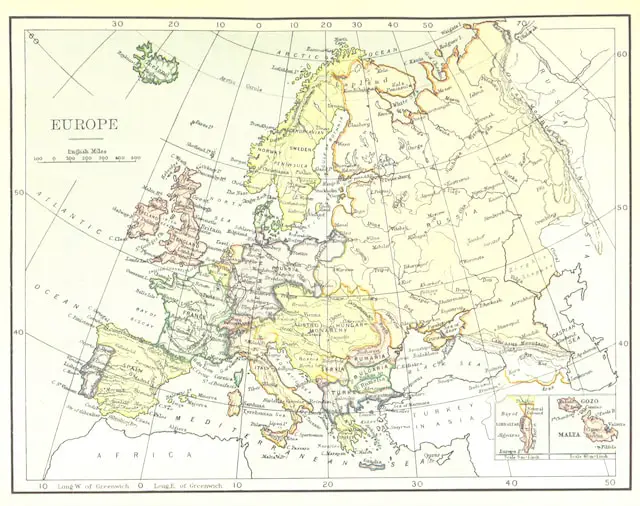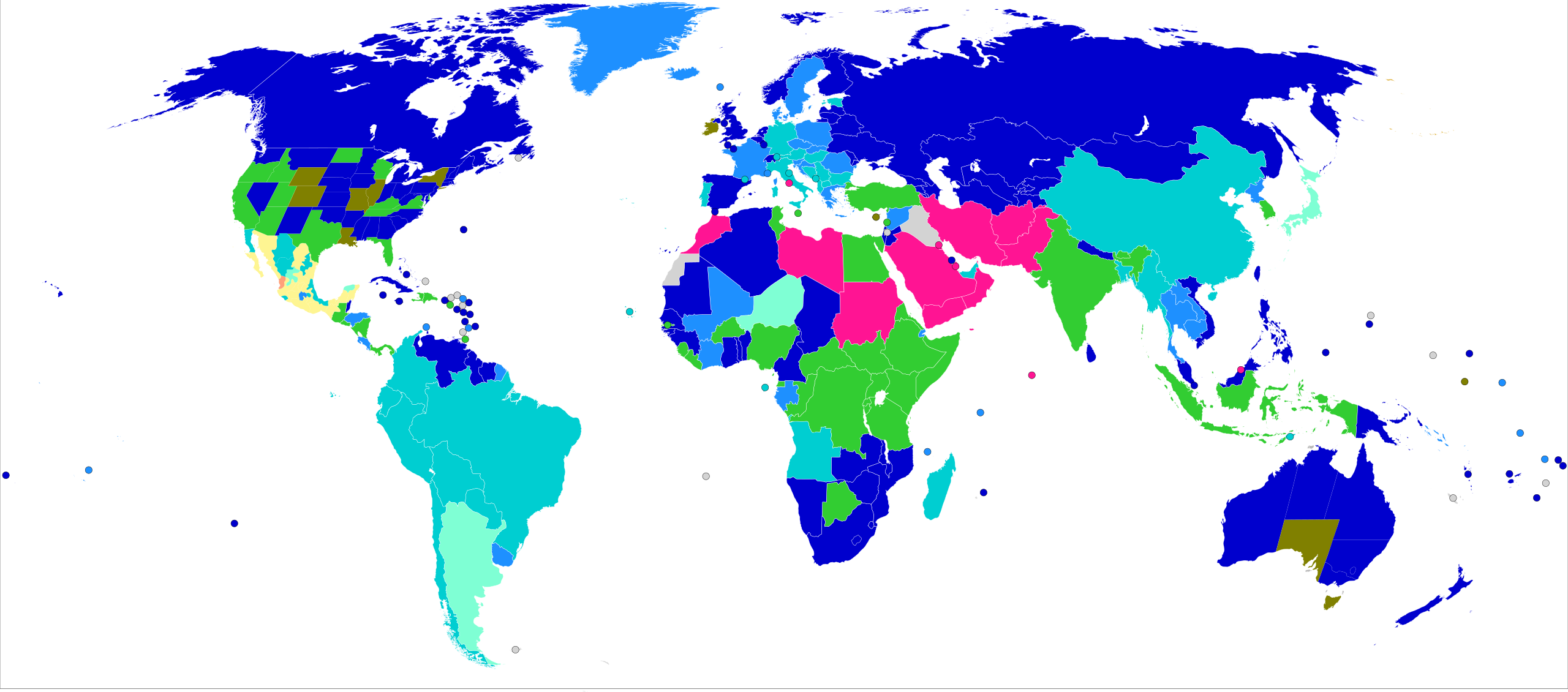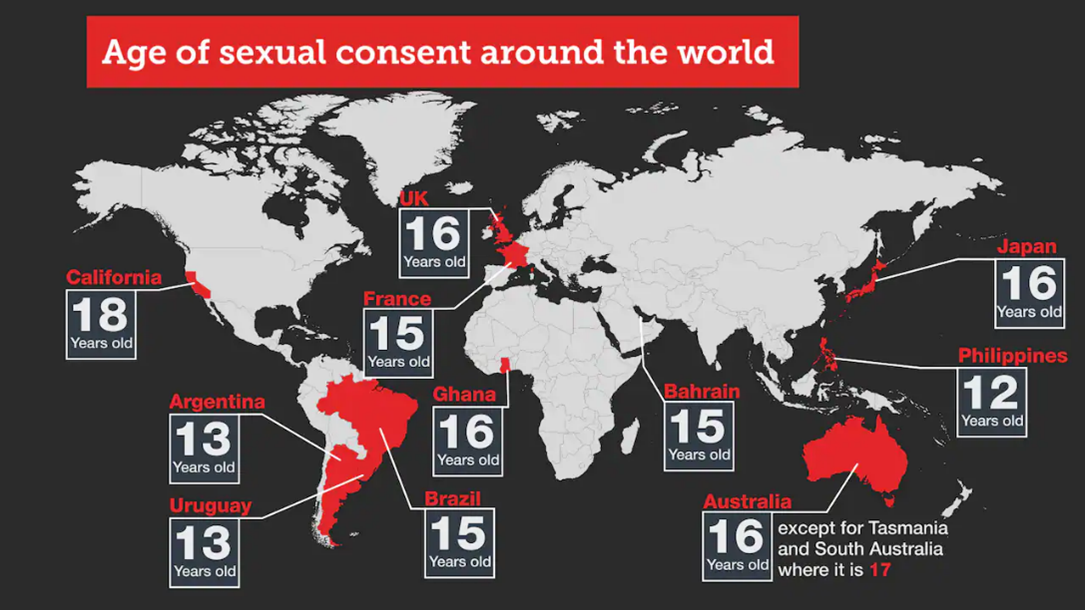Age Of Consent Russia: Understanding The Legal Landscape And Cultural Implications
Let me tell you something interesting, folks. The age of consent Russia has become a topic of global discussion in recent years. Whether you're a student, traveler, or just someone curious about international law, understanding this concept is crucial. The age of consent in Russia isn’t just a legal matter—it's a cultural and social issue that affects millions of lives. So, let’s dive into this topic and explore what it really means.
Now, before we get too deep, let’s clarify what we’re talking about here. The age of consent refers to the minimum age at which an individual is considered legally capable of consenting to sexual activities. In Russia, this age varies depending on specific circumstances and regional laws. It’s not as straightforward as you might think, and that’s where things get interesting.
Why should you care? Well, understanding the legal framework surrounding the age of consent in Russia is essential for anyone who wants to navigate this country responsibly. Whether you’re planning a trip, studying law, or simply interested in global affairs, this knowledge matters. So, let’s break it down step by step and uncover the truth behind this controversial topic.
Read also:Pop Melodie R34 The Ultimate Guide To Nissans Iconic Tune Machine
What is the Age of Consent in Russia?
Alright, here’s the deal. The age of consent in Russia is generally set at 16 years old. This means that individuals below this age are not considered legally capable of consenting to sexual activities. But hold on, there’s more to it than just a number. The Russian legal system allows for some flexibility in certain situations, which we’ll explore later. For now, let’s focus on the basics.
It’s important to note that while 16 is the standard, there are exceptions. These exceptions are often determined by regional laws and specific circumstances. For example, some regions may have stricter regulations, while others might be more lenient. This variability makes it essential for anyone living in or visiting Russia to understand the local laws.
Understanding the Legal Framework
Now, let’s talk about the legal side of things. The Russian criminal code outlines the laws surrounding the age of consent. Article 134 of the code deals with sexual acts with minors, and it’s pretty serious stuff. Violating these laws can result in hefty fines, imprisonment, or even deportation for foreigners. So, it’s not something to take lightly.
Key Points in Russian Law
Here are some key points to keep in mind:
- The age of consent is 16, but there are exceptions for close-in-age partners.
- Sexual exploitation of minors is strictly prohibited and carries severe penalties.
- Regional laws may impose additional restrictions or allowances.
These points highlight the complexity of the legal framework in Russia. It’s not just about a single law; it’s about understanding the broader context in which these laws operate.
Cultural Perspectives on the Age of Consent
Let’s shift gears and talk about the cultural side of things. In Russia, like in many countries, cultural norms play a significant role in shaping attitudes toward the age of consent. While the legal age is 16, societal expectations and family values often influence how these laws are perceived and enforced.
Read also:Kevin Hart Damn Gif The Ultimate Guide To The Viral Sensation
For instance, traditional families might have stricter views on relationships and sexual activity, while urban areas might be more accepting of modern norms. This cultural diversity adds another layer to the conversation and makes it even more fascinating to explore.
How Culture Shapes Perception
Here’s how culture influences the perception of the age of consent in Russia:
- Traditional values often emphasize the importance of family and community in regulating behavior.
- Urban areas tend to adopt more liberal attitudes, especially among younger generations.
- Media and education play a crucial role in shaping public opinion on these issues.
These factors contribute to the ongoing debate about whether the current laws align with societal norms or need to be updated to reflect modern realities.
Historical Context of the Age of Consent in Russia
Now, let’s take a trip down memory lane. The age of consent in Russia hasn’t always been 16. Historically, the legal framework has evolved over time, reflecting changes in society and government policies. Back in the Soviet era, the age of consent was set at 14, but it was later raised to 16 in the 1990s to align with international standards.
This historical context is important because it shows how laws can change in response to social, political, and economic factors. Understanding this evolution helps us appreciate the complexities of the current legal landscape.
Key Historical Developments
Here are some key historical milestones:
- 1922: The Soviet Union establishes the age of consent at 14.
- 1990s: The age is raised to 16 to comply with international standards.
- 2010s: Increased focus on protecting minors from exploitation and abuse.
These developments highlight the ongoing efforts to ensure the safety and well-being of young people in Russia.
International Comparisons
So, how does Russia stack up against other countries when it comes to the age of consent? Let’s take a look at some international comparisons. In many European countries, the age of consent ranges from 14 to 18, with variations based on regional laws and cultural norms. For example, in Spain, the age is 13, while in Germany, it’s 14.
These differences underscore the importance of understanding local laws and cultural contexts when discussing the age of consent. What might be acceptable in one country could be illegal in another, so it’s crucial to stay informed.
Why Comparisons Matter
Here’s why comparing the age of consent across countries matters:
- It highlights the diversity of legal frameworks and cultural norms.
- It provides insights into global trends and best practices.
- It helps individuals navigate international relationships and travel responsibly.
By examining these comparisons, we can gain a better understanding of the complexities involved in setting and enforcing age of consent laws.
Challenges and Controversies
No discussion about the age of consent in Russia would be complete without addressing the challenges and controversies surrounding this topic. One of the biggest challenges is balancing legal protections with individual freedoms. While the law aims to protect minors from exploitation, it can also be seen as restrictive or overly controlling by some.
Another controversy involves the enforcement of these laws. Critics argue that enforcement is inconsistent and often favors certain groups over others. This raises questions about fairness and justice in the legal system.
Addressing the Challenges
Here’s how some of these challenges are being addressed:
- Increased education and awareness campaigns to inform the public about the laws.
- Strengthening enforcement mechanisms to ensure consistent application of the law.
- Engaging stakeholders, including NGOs and advocacy groups, in policy discussions.
These efforts aim to create a more equitable and effective legal framework that protects the rights and safety of all individuals.
Impact on Society
Let’s talk about the broader impact of age of consent laws on Russian society. These laws not only affect individuals but also shape societal norms and values. By setting a minimum age for consent, the law sends a clear message about the importance of protecting young people from harm.
However, the impact goes beyond just legal protection. It also influences how people think about relationships, sexuality, and personal responsibility. This can lead to positive changes in attitudes and behaviors, fostering a safer and more respectful society.
Positive Outcomes
Here are some positive outcomes of age of consent laws:
- Reduced incidence of sexual exploitation and abuse.
- Increased awareness about the importance of consent and personal boundaries.
- Improved support systems for victims of abuse and exploitation.
These outcomes demonstrate the value of having strong and effective age of consent laws in place.
Future Directions
Looking ahead, what does the future hold for age of consent laws in Russia? As society continues to evolve, so too will the laws that govern it. There’s a growing movement to update and refine these laws to better reflect modern realities and address emerging challenges.
This includes incorporating new technologies and platforms into the legal framework, as well as expanding protections for marginalized groups. By staying ahead of the curve, Russia can continue to lead the way in promoting the safety and well-being of its citizens.
What to Expect
Here’s what we might expect in the future:
- Greater emphasis on digital safety and online protections for minors.
- Expanded support services for victims of exploitation and abuse.
- Increased collaboration with international partners to combat human trafficking and exploitation.
These developments hold promise for a brighter and safer future for everyone involved.
Conclusion
Alright, folks, let’s wrap this up. The age of consent in Russia is a complex and multifaceted issue that touches on legal, cultural, and social dimensions. By understanding the laws, historical context, and global comparisons, we can gain a deeper appreciation for the challenges and opportunities involved in this topic.
So, what can you do? First, stay informed about the laws and regulations in your area. Second, engage in respectful and responsible behavior when it comes to relationships and personal boundaries. And finally, support efforts to protect and empower young people everywhere.
Feel free to leave a comment or share this article with others who might find it useful. Together, we can create a safer and more informed world for everyone. Thanks for reading, and stay tuned for more insightful content!
Table of Contents
- What is the Age of Consent in Russia?
- Understanding the Legal Framework
- Cultural Perspectives on the Age of Consent
- Historical Context of the Age of Consent in Russia
- International Comparisons
- Challenges and Controversies
- Impact on Society
- Future Directions
- Conclusion



